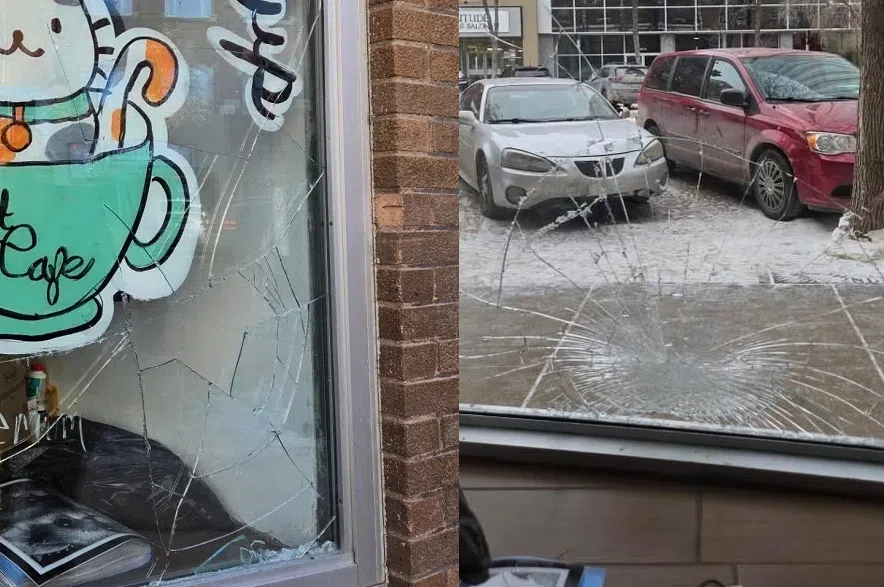Businesses throughout Saskatoon are forced to shoulder the costs of rising crime and vandalism, according to a letter sent to city council by the Greater Saskatoon Chamber of Commerce.
The letter, sent Wednesday and signed by chamber CEO Jason Aebig, cited a survey of 263 businesses, with many reporting higher insurance premiums, increased security expenses and more frequent interactions with vulnerable people.
Read More:
- Saskatoon police arrest woman allegedly attempting to steal Prairie Lily riverboat
- Saskatoon council approves proposed bylaw changes to the sale of bear spray
- Driver flees scene, abandons vehicle after crash on 20th Street: Police
According to the survey, 58 per cent of businesses indicated their insurance premiums have increased over the past 12 months, and 85 per cent of businesses reported increases in security related costs.
Additionally, one in four businesses reported incidents with vulnerable populations on a weekly or more frequent basis.
In an interview with 650 CKOM, Aebig said most incidents are related to property damage, and fixing the damage is an additional cost borne by the city’s businesses. Aebig said that many small- and mid-size business owners do not have profit margins great enough to cover such costs on their own.
“Those are less dollars that businesses are spending in new jobs or expanding their businesses, and that has a direct and significant economic impact for the city,” he said.
Crime and vandalism doesn’t just affect the city’s downtown business district, Aebig explained, noting businesses from suburban centers such as Stonebridge and Sutherland have also raised similar concerns.
While many businesses report property damage to insurance companies, Aebig said many don’t out of fear that insurance costs will rise.
Aebig said the survey also revealed that some businesses don’t report incidents to police “because they feel like ultimately the response may be weak.”
“That’s a concern, because then we lose sight of what the scope of the challenge is,” he said.
Moving forward, Aebig said the public policy response should include measures to offset costs to the businesses directly affected by crime.
He pointed to measures taken in Regina, where a grant program was recently approved to support businesses located near shelter facilities.
British Columbia has taken a provincial response to such issues, Aebig explained, noting that the provincial government there helps small- and medium-sized companies manage the burden of property damage and crime-related losses.
“We would like to maybe see something similar here,” Aebig said.
“We’re urging city council to look at those policies and see if there isn’t something that would make sense for Saskatoon.”
Aebig acknowledged efforts by both the Saskatchewan government and the City of Saskatoon, saying they’re taking an “all hands on deck” approach to tackle the challenge of homelessness.
“What we don’t want to lose sight of is the total impact in the big picture of all of this,” he said.
“When a substantial amount of the cost of this challenge is being born by small- and mid-sized private enterprises, we need to factor that into the discussion and make sure that those needs and costs are addressed as well.”
650 CKOM has reached out to Saskatoon Mayor Cynthia Block for comment.











